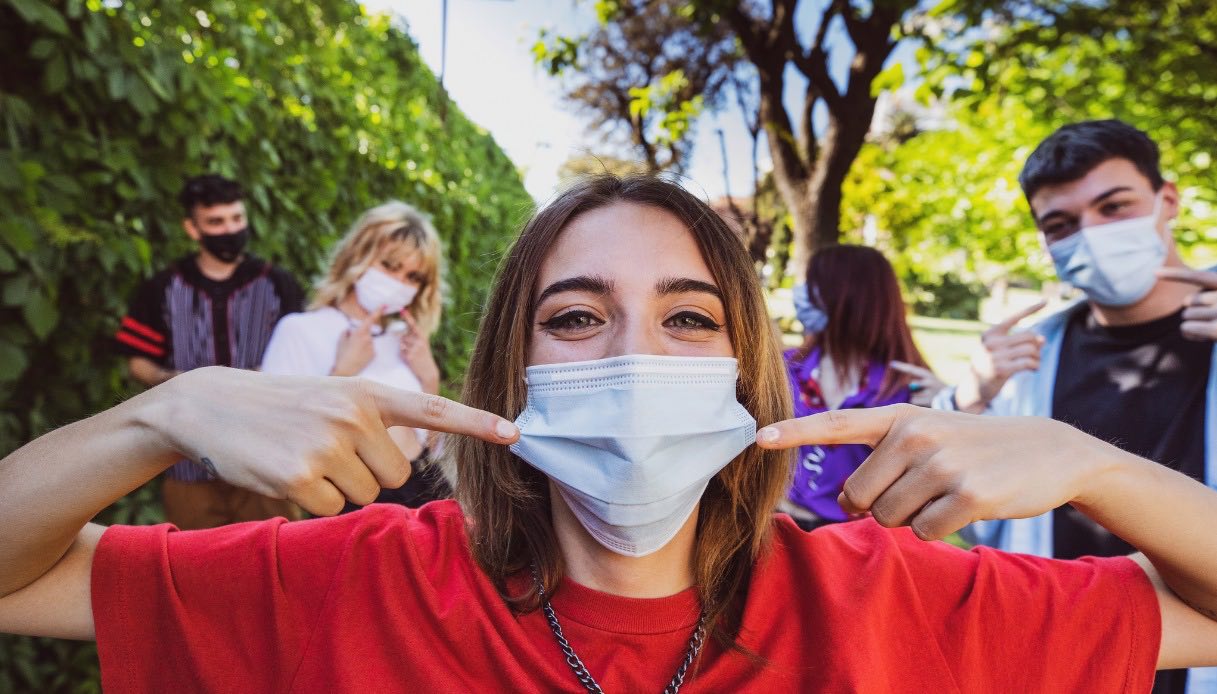Table of Contents
We seek it, we demand it, we yearn for it to the point of become slaves of his tyranny. Because happiness is a one-way obsession, the same one that denies human emotions such as pain, failure and sadness, because being happy is more important than anything today. Yet why do we never feel satisfied with this status once it is achieved?
What is happiness?
Perhaps because capitalism has found a way to sell us happiness and we have allowed ourselves to be convinced that by coming into possession of material goods and living experiences, one after the other, we would have filled the gaps and absences. And if all this was not enough, here it is self care, meditation, mindfulness and all of that happiness industry which should make us live like robots. Always with a smile, optimistic, proactive and productive. Are these, then, the characteristics that make us happy people?
For some, happiness comes with the achievement of dreams and desires. But it is worth asking whether these are really ours or are they just a cultural product badly influenced by the society in which we live. Because it is useless to deny it: we are bombarded with inspirational models to follow, they are the ones who made it. And reaching their status, only getting where they have managed to go, is perhaps the highest of our expectations.
And then we believe in that promise. And then we are convinced that by getting those results we can get to her, to happiness. So is happiness nothing more than the combination of job success, recognition and economic well-being?

happiness and economic well-being
Measuring happiness
Indeed, today, happiness is measurable. This is demonstrated by the World Happiness Report which provides an answer to the thorniest question ever by combining different parameters such as life expectancy, personal freedom, internal GDP, levels of corruption and security and also the efficiency of the health system. You will understand, therefore, how much world happiness may have changed as a result of the health emergency, perhaps.
Let’s say maybe because in reality, looking at the results of 2021, the situation has not changed that much, at least as one would not expect. Finland is still at the top of the classic and the reason is obvious: happiness is measured through indicators that vary economic conditions and also personal fulfillment.
Precisely the economic aspect makes us understand that the material possession of goods and money is closely linked to happiness. It is certainly no coincidence that the countries that have conquered the podium of the report are also the most wealthy people around the world.
World report on happiness
But what does the World Happiness Report say? On March 20, on the occasion of World Happiness Day, researchers from the United Nations Sustainable Development Solutions Network published the latest World Happiness Report. The results are based on a series of interviews with the population regarding the quality of life they find themselves living and expecting.
What emerged from the report is that while in some countries the pandemic has taken away hope and happiness, in others not much has changed and, indeed, in some territories this it made the elders more cheerful. A paradox if we think that they are the category most affected by the Coronavirus. True, the risk of virus complications doubles for older people, yet they are happier today than they were a few years ago.
The reason for this bloodlessness is to be found in the parameters used to draw up the report: the elderly perceived that society was working for them continuously, and making sacrifices, to protect them. They were, in fact, the first recipients of the vaccine. And they were again the protagonists of countless video calls and phone calls during the various lockdowns; this situation allowed him to maintain contact with his family far more than before the pandemic. On the contrary, instead, young people have had the most difficult year ever suffering first the work backlash, then the personal and emotional one.
But the most interesting fact, which confirms our long premise on the true meaning of happiness, is that the countries that were at the top of the ranking have remained, even during the health emergency. Is it all thanks to the efficient health system? This certainly contributed, as it is a highly regarded parameter.
The happiest countries in the world
The ranking of the happiest countries in the world compiled by the World Happiness Report sees Finland once again excel. In the top 10 we find, again, Iceland, Denmark, Sweden and Norway. Italy, on the other hand, is not even in the top 20, but that 25th place obtained is not demeaning anyway given that, compared to the previous year, and despite Covid, it managed to earn three positions more than the previous year.
So to understand what happiness really is we have to look at the Finnish model? We can do it, of course, but it is automatic to ask why the happiest country in the world is also the one with the higher suicide rate among the population in Europe. And mind you, this is not a cliché and, indeed, the nation itself has been working hard in recent years to prevent suicide as confirmed by the suicide prevention strategy for 2019-2030.
There are many people who criticize this relationship of happiness considering the data unreliable. However we are so used to quantify happiness that we all wait for that day a year to find out if the country we live in is happy or not. And identify with the result, and sing victory. Maybe.

How is happiness quantified?
Happiness or privilege?
But even if the world happiness report fails, we will always return to the starting point, because the truth is that not even the list of the happiest countries in the world and the parameters used to compile it have provided us with an adequate answer. But perhaps they have given us the confirmation that happiness is inevitably linked to economic conditions, profit and personal fulfillment.
It is therefore a sentiment destined to be experienced only by a lucky few obtained from a mix of privileged conditions, as demonstrated by the happiest countries in the world. So maybe this is really happiness, a privilege destined for a few, to those who manage to cultivate a series of successes, to those who enjoy elitist status and positions, to those who have houses, cars and money.
And what is left to all the others? A no-cost alternative: the one in which love, bonds and attention to little things take over.

Happiness at no cost
Read also










